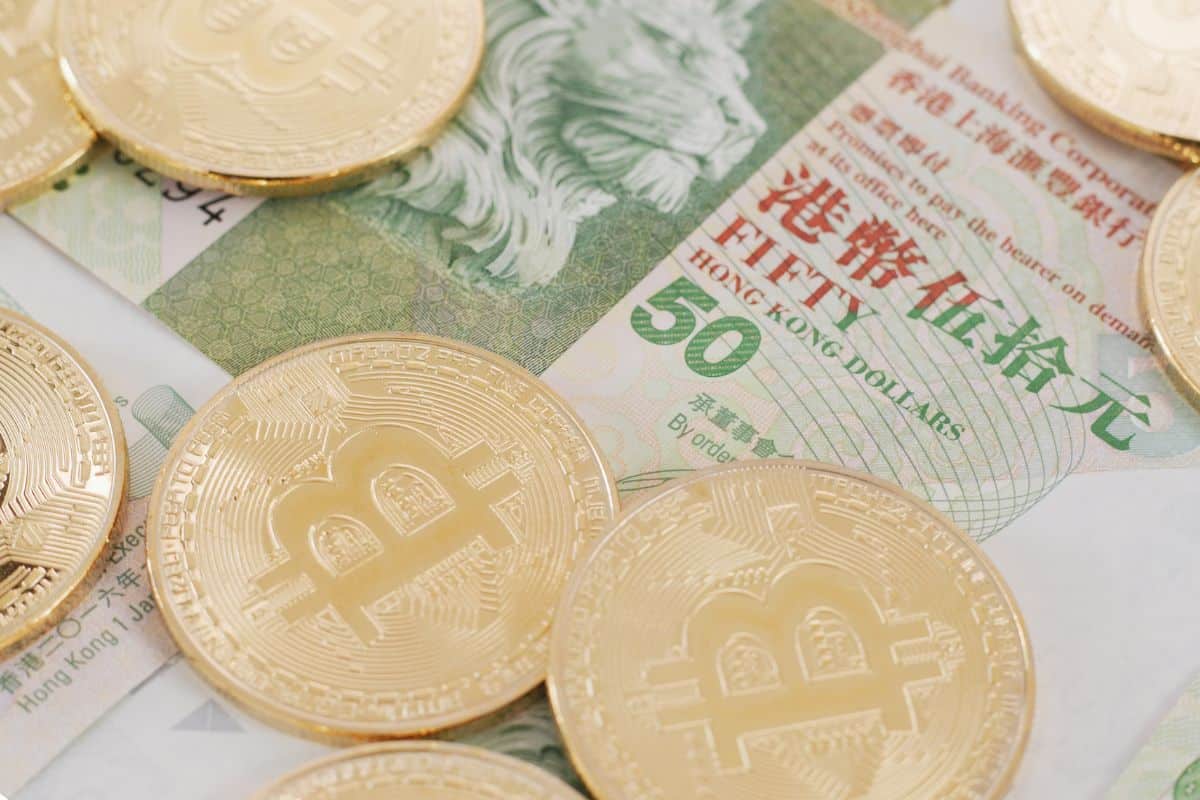Once hostile to crypto, Hong Kong is now rolling out the red carpet for digital assets. But is this a genuine pivot or just a flashy headline grab? Hong Kong’s gone from ghosting crypto to embracing it. This article unpacks how the SFC’s licensing regime works.
Why Hong Kong is Back in the Crypto Game
Hong Kong appeared to have abandoned cryptocurrency in 2021. There were restrictions on retail trading. Bags were being packed by exchanges. The atmosphere was hostile at worst and unfriendly at best. Then came the middle of 2023. The city flipped the script, offering a licensing path through the Securities and Futures Commission (SFC). This was a clear signal HK wanted back in, both as a serious Web3 hub as well as a competitor. This pivot created shockwaves around the world, not just local noise.
Hong Kong took the initiative while the US was busy lawyering up and MiCA kept EU operators guessing. “We allow crypto” wasn’t the slogan. The idea was to show every country how to launch it legally. The area was suddenly used as a launchpad rather than just being put back on the radar. Singapore, Tokyo, and even Dubai took notice of the SFC’s framework.
Hong Kong emerged as a legit area for crypto launches and startups to test and grow. In other words, you can now check out the debut of new coins, tokens, and blockchain-based assets that are publicly pushed through exchanges or structured campaigns (source – cryptonews.com).
How Crypto Licensing Works in Hong Kong
he SFC is the driving force behind Hong Kong’s recent push for a Virtual Asset Service Provider (VASP) licence. This goes beyond simple paper-shuffling. This highly regulated framework necessitates local physical presence, compliance officers on-site, and anti-money laundering (AML) procedures. The bar for entry is high. Candidates must hire a certified AML compliance officer, maintain minimum capital thresholds, and register a local business.
There are, however, administrative fees for submitting the application — the SFC charges an application/annual fee of $4,740 for each virtual asset service — and when you stack legal, compliance, and operational costs, total setup expenses can easily hit several hundred thousand USD (source – sfc.hk).
Before the trade goes live, the founders should set aside hundreds of thousands for legal and operational setup. Additionally, once authorised, anticipate ongoing reporting to SFC and quarterly audits. Who is eligible? If they have the corporate and financial backbone, serious operators and institutional-grade exchanges are approved. Token-only startups, DeFi-native DAOs, or smaller teams? Many are eliminated early.
What’s Allowed, What’s Not: The Regulatory Grey Zone
It’s fair to say that the SFC of Hong Kong enjoys discussing investor protection. The headline reads: Regulations aimed at protecting retail users. However, upon closer inspection, it becomes clear that the SFC isn’t just a watchdog. It’s establishing a boundary between regulated innovation and noise. They are approving centralised platforms that are subject to TradFi regulations.
This means third-party audits, custody procedures, and KYC. However, there is either radio silence or ambiguous wording like “under review” when it comes to DAOs, DeFi, and NFTs. These sectors are not explicitly banned, but remain in regulatory limbo, the SFC has acknowledged they are still under active review with no defined timeline.
Things get even murkier with banking. According to several founders, opening an account is still a “hurry up and wait” situation. The SFC’s claims that it’s working with banks to improve fiat on-ramps. But the truth is, compliance teams at traditional banks are still hesitant to touch cryptocurrency with a long stick.
Even licensed platforms continue to face local banking bottlenecks. It seems Hong Kong is interested in innovation, but only if it can keep an eye on it for international use.
Who’s Already in Hong Kong? Big Players Are Moving Fast
Big exchanges like HashKey, OSL, and Crypto.com aren’t just testing the waters. They’ve set up shop. Local offices? Check. VASP-compliant services? Live. These aren’t symbolic moves; they’re building teams, hosting events, and staking real intent.
Institutional capital and Web3 startups are on the same bandwagon. Venture capital firms are setting up local offices to support initiatives like Alloy Labs and Animoca. Investment giants like the Hong Kong AI and Web3 Fund sing the same tune. Under the new regulations, even local hedge funds are shifting to blockchain allocations.
Still Lots of Limits for Retail and DeFi
Despite all the optimistic headlines, there are some warnings to consider about Hong Kong’s cryptocurrency revival. Access to retail stores? Still firmly gated. Only a small number of “large-cap” tokens are approved by the SFC. And even then, exchanges are required to implement stringent suitability checks.
You’re out of luck if you’re hoping to trade the next memecoin moonshot. Coins that are stable? Regulatory limbo persists. A clear framework has not yet been finalised by the SFC and HKMA. Until then, they cannot be touched by any licensed platform—no trading, no minting. For DeFi and payment use cases, that is a significant bottleneck.
Additionally, DeFi, NFTs, and DAOs are essentially ignored in the fine print. More accurately, they’re in a regulatory grey zone — not illegal, but not clearly allowed either. The SFC has taken a “wait and see” approach for now. Point being, the legality of projects that are on the verge of decentralization is still in limbo.
All this begs the question: Is this a city that is leading the way in crypto, or is it just TradFi dressed in Web3?
How Hong Kong Stands Apart from Mainland China
To set the record straight, Hong Kong’s position on cryptocurrency goes beyond Beijing Lite. Because of the “One Country, Two Systems” framework, Hong Kong is playing a completely different hand from mainland China.
While you can’t legally trade Bitcoin in Shanghai, you can set up a licensed exchange in Central. That’s not a loophole. It’s autonomy. For founders, that means HK isn’t just another dot on the map. It’s a rare regulatory outpost where you can reach Chinese-speaking users, tap into Asian capital, and still keep things buttoned-up enough to impress Western partners.
Should You Launch Your Startup in Hong Kong?
Hong Kong requires very careful consideration if you’re serious about expanding in Asia.
On the bright side? Legitimacy is synonymous with clear regulation. Credibility is enhanced by the VASP licence, particularly when presenting to institutional players. Additionally, you gain access to Asia’s investor pool, the capital of China, and a jurisdiction that speaks fluent English, legalese, and crypto lingo.
Still, don’t mistake it for a frictionless paradise. That shiny VASP license comes with a price tag and real boots on the ground. Compliance needs an actual team, not just a Telegram mod.
Local banking? It’s still a headache. Fiat ramps often get stuck in the mud of changing rules and slow-moving paperwork. Even licensed crypto firms have reported being rejected or delayed by major banks like HSBC and Hang Seng, due to high internal risk aversion.
And if you’re serious about staying on the regulator’s good side, business insurance in Hong Kong isn’t optional. It’s part of the uniform. Bottom line? Hong Kong’s a solid launchpad if you’re building a compliance-first project with eyes on Asian capital. But if you’re spinning up a fast-and-loose DeFi experiment with four devs and a dream, maybe hold off until the regulatory tide’s a little friendlier.
Final Take: A Real Opportunity, If You’re Ready
The city is strategically betting on becoming Asia’s Web3 on-ramp. Yes, the licensing is rigorous, but at least it’s open. And honest! Hong Kong is one of the few jurisdictions that is genuinely erecting rails for founders and investors. Still, the whole situation is not fully baked. Stablecoins, NFTs, and DeFi are among the areas that remain unclear. And if your startup lives on fumes, the compliance treadmill might burn through your runway faster than you can say VASP. Call it cautiously bullish: a sandbox with genuine upside rather than a free-for-all. Just don’t forget to bring a shovel and a legal team.
Header Image Credit: Leung Cho Pan via Canva



